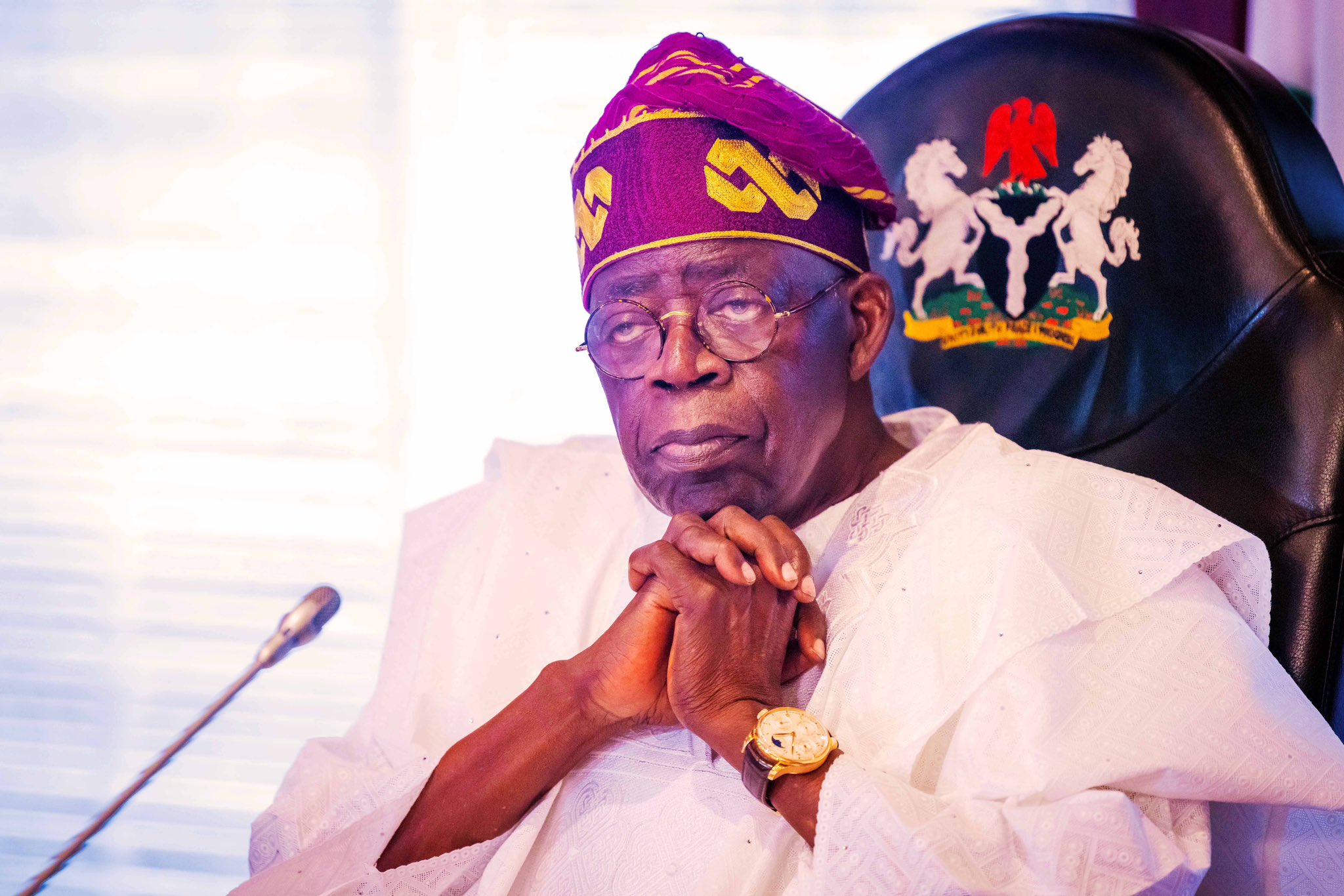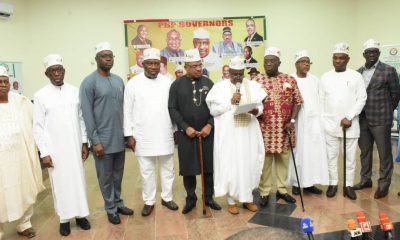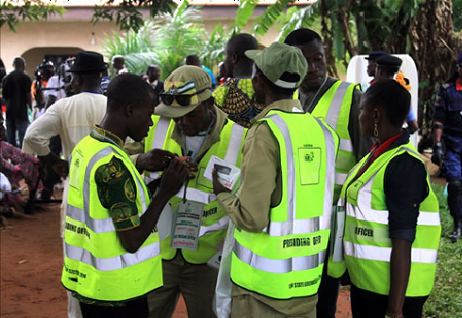General
PDP Governors List Failures of Buhari Administration
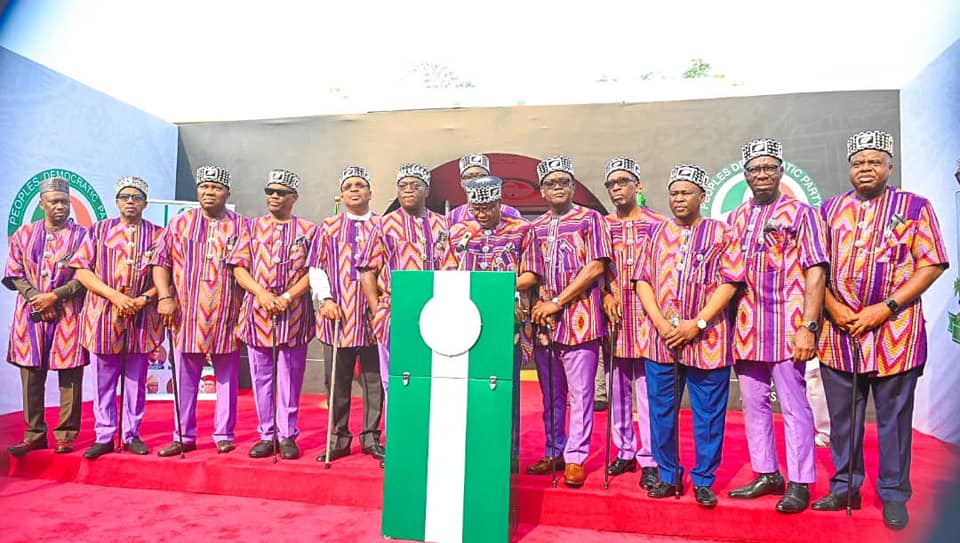
By Modupe Gbadeyanka
Governors elected under the platform of the opposition Peoples Democratic Party (PDP) have lamented the excruciating hardship and suffering Nigerians are currently going through.
The Governors under the PDP Governors’ Forum said the ruling All Progressives Congress (APC) has turned the country upside down, making life very difficult for citizens.
They said the lives of Nigerians under the administration of President Muhammadu Buhari have been miserable unlike when the PDP was in power from 1999 to 2015.
At the end of their meeting in Aba, Abia State, they said the opposition party was ready to “take over and offer qualitative leadership options to rescue the nation,” appealing to Nigerians “to reject the APC” in the 2023 general elections.
They claimed the failures of the ruling party as below;
Diesel which is critical for the running of SMEs was N131.47 in 2015, it now costs above N700
- Fuel: Official and Black-Market was N87/155 in 2015, it now costs N167/350.
- Aviation Fuel/Air Ticket Rate on Domestic Flights was N110 per Litre/N18,000 in 2015, it now hovers around N700 per Litre/N70,000, where available. Indeed, the scarcity of fuel that has resulted in the loss of several man-hours is a disgrace to Nigeria.
- The collapse of the National Grid (126 times in 7 years – (June 2015 to March 2022) and its consequences for non-availability of power is most unfortunate.
- Kerosene (NHK) used by the ordinary Nigerian for cooking and power was N180 in 2015, it now sells at N450.
- Liquefied Petroleum Gas (LPG) – 12.5kg Cylinder sold for N2,400 in 2015, is now sold at between N8,750 and N10, 000.
- Prices of basic foodstuffs are now three times higher than what they used to be in 2015. Staple foods such as rice, beans, cassava flakes are now slipping out of the hands of average Nigerians. Indeed, a Bag of Rice sold for N8500 in 2015 is now N39,000.
- Electricity was N14.23 per kilowatt in 2015, it is now N38.530, and not even available.
- The unemployment rate was 11.4% in 2015, it is now over 33%, one of the highest in the world.
- The poverty rate in 2015 was 11.3% but now about 42.8%.
- Accumulated Inflation in 2015 was about 4%, it is now 15.50%; Inflation Rate was 9.01% in 2015 and now 15.7%.
- Perhaps the Exchange Rate has been one of the most disastrous. N150 to a dollar was the parallel market (patronised by most businessmen and Nigerians) rate in 2015, it is now about N580 to $1 in the parallel market and still rising.
- Debt and Debt Servicing: Domestic Debt of N8.4T and External Debt of USD 7.3b was incurred between 1999-2015.
While Domestic Debt of N7.63T (June 2015-Dec 2020) and USD28.57b as at Dec 2020 was incurred. External debt of USD21.27b was incurred between June 2015 and 2021.
- National Debt to GDP Ratio was 23.41% (2016) it is now 36.88% (2022).
- The Corruption Index has risen from 136 in 2015 to 150 now.
- Nigeria’s Misery Index, an indicator used in determining how economically well off the citizens of a country are, is usually calculated by adding the seasonally adjusted unemployment rate to the annual inflation rate, which has moved from 14.75 per cent in 2015 to 50.48 (2021).
- The major threat to the agricultural sector and food security in Nigeria is insecurity. In the northeast of Nigeria, it is estimated that no fewer than 70,000 hectares of arable farmland have been abandoned in the affected States and Local Government areas. The trend is the same all over the country. This further contributes to food inflation. The APC led Federal Government must take steps to cooperate with States to bring security down to the grassroots.
In addition, the Governors accused the Nigerian National Petroleum Company (NNPC) Limited of siphoning money with the support of Mr Buhari, who doubles as the Minister of Petroleum.
“The PDP Governors once again decried the inability of the NNPC to make its statutory contributions to the Federation Account, in spite of oil selling at above $110. It is patently unconstitutional for NNPC to determine at its whim and discretion when and what to pay to the Federation Account, as it is a mere trustee of the funds for the three tiers of Government: Federal, States and Local Governments. We once again, call for investigations and audits of the quantity of consumption of fuel ascribed to Nigerians and for the deployment of technology at the filling stations to determine in a transparent manner the volume of consumption.
“The Governors would resist any further attempt by NNPC to ascribe unsubstantiated subsidy claims to other tiers of government.
“NNPC deducts N8.33 billion monthly for the rehabilitation of the refineries in Nigeria. To date, no refinery is working.
“On priority projects of the nation’s oil industry, NNPC deducted N788.78 billion for various investments between 2018 and 2021 without recourse to FAAC.
“NNPC in 2021 alone claimed to have paid over One Trillion Naira as petroleum subsidy. Indeed, in the month of March 2022, N220 billion was deducted as oil subsidy with a promise that N328 billion will be deducted in April 2022. This is unacceptable.
“NNPC and FIRS, as well as other remitting agencies, continue to apply an exchange rate of N389/$1 as against the Import and Export window of N416/$1. The extent of this leakage can be better felt if this rate is compared to the current N570/$1.
“From available records about N7.6T is withheld between 2012 and 2021, by NNPC from the Federation Account. All these are said to be payments for oil subsidies.
“Conclusively, we believe that all these leakages in NNPC have been made possible because the President is also the Minister of Petroleum. The urgent separation of these two portfolios has become necessary,” they alleged.
General
NIMASA Rallies Stakeholders’ to Develop National Action Plan

By Adedapo Adesanya
The Nigerian Maritime Administration and Safety Agency (NIMASA) has pledged its commitment to provide the regulatory leadership, technical coordination, and stakeholder engagement required to successfully develop and implement a robust National Action Plan on maritime decarbonization in Nigeria.
The Director General of the agency, Mr Dayo Mobereola, made this known during the National Stakeholders’ workshop on the development of a National Maritime Decarbonization Action Plan, further describing the workshop as a critical step in actualising the Federal Government’s blue economy and climate objectives.
Represented by the Executive Director, Operations, Mr Fatai Taiye Adeyemi, the NIMASA DG underscored the significance of the IMO GreenVoyage2050 Project, a technical cooperation initiative /designed to support developing countries in implementing the IMO GHG Strategy.
According to him, the National Action Plan being developed will reflect national realities, leverage existing capacities, address identified gaps, and align with broader economic and environmental priorities of the federal government.
Mr Mobereola stressed that “this transition is not merely about compliance with international obligations, it is about safeguarding our marine environment, protecting public health, strengthening the blue economy, and ensuring that our maritime industry remains competitive and future-ready”, the DG said.
Also speaking at the event was the Technical Manager of the IMO GreenVoyage2050 Project, Ms Astrid Dispert, who highlighted that the overarching objective of the initiative is to advance a coherent and globally aligned regulatory framework to accelerate maritime decarbonization.
She also emphasised that NIMASA plays a pivotal role in driving the project at the national level.
The IMO GreenVoyage2050 Project provides technical expertise and institutional support to assist countries in developing and implementing National Action Plans that promote sustainable shipping practices, encourage investment in clean technologies, and strengthen capacity for long-term emissions reduction.
Through this collaboration, the federal government is advancing deliberate steps towards maritime decarbonization, reinforcing its commitment to global climate goals and ensuring a cleaner, greener, and more sustainable future for the sector.
General
BPP Mandates Digital Submission for MDAs From March 1

By Adedapo Adesanya
The Bureau of Public Procurement (BPP) has directed all Ministries, Departments and Agencies (MDAs) to comply with its digital submission process effective March 1.
The directive was contained in a circular signed by the Director-General of the Bureau, Mr Adebowale Adedokun, noting that the move was part of the bureau’s commitment to digital transformation and paperless governance.
It explained that the transition followed an earlier circular of Aug. 4, 2025, which introduced electronic submission procedures.
According to the bureau, it has successfully moved from physical filings to a dedicated e-mail service for document submissions and is now advancing to a more robust and integrated system.
The circular announced the inauguration of the BPP Digital Submission Portal, a web-based platform designed to enable MDAs submit procurement-related documents directly to the Bureau.
It stated that the automated platform would streamline the submission process, enhance transparency and ensure accelerated tracking of procurement-related documents and petitions.
“With effect from March 1, all MDAs will be required to use the portal to submit requests for ‘No Objection’ Certificates, approvals for ‘No Objection’ for special procurements, clarifications and status updates on submissions,” the bureau said.
It added that the portal would be hosted on the Bureau’s official website and would become fully operational from the effective date.
The bureau warned that physical submissions or manual hand-deliveries would no longer be prioritised and would eventually be rejected following the full transition to the digital platform.
It urged accounting officers to brief their procurement departments and ICT units on the development to ensure seamless processing of procurement activities from March 1.
It further advised MDAs to contact the Bureau via its official email for information on the onboarding process and integration into the portal.
The bureau emphasised that full compliance by all MDAs was required to ensure a smooth transition and avoid delays in the implementation of the 2026 fiscal year procurement processes.
General
Senate Seeks Removal of CAC Boss Hussaini Magaji
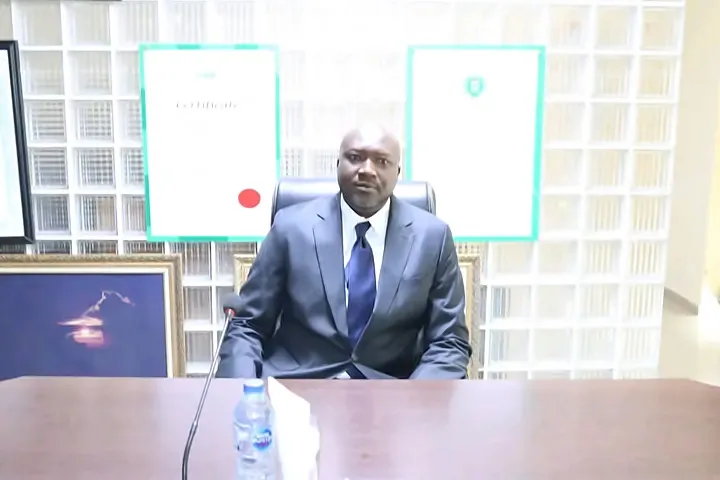
By Adedapo Adesanya
The Senate has asked President Bola Tinubu to remove the Registrar General of the Corporate Affairs Commission (CAC), Mr Hussaini Ishaq Magaji, from office.
The Senate Committee on Finance, while passing a resolution in Abuja on Thursday, accused Mr Magaji, a Senior Advocate of Nigeria (SAN), of failing to honour the Senate’s invitations to account for the finances of his agency.
“He refused on so many occasions to honour our invitation to appear before this committee.
“We have issues with the reconciliation of the revenue of CAC.
“Each time we invite him, he gives us excuses,” the Chairman of the committee, Mr Sani Musa, said as the committee passed the resolution.
CAC was part of a group of agencies that the House of Representatives Public Accounts Committee (PAC) recommended zero allocation for the year 2026, for allegedly failing to account for public funds appropriated to them.
The committee, at an investigative hearing held two weeks ago, accused CAC and some other ministries, departments and agencies (MDAs) of shunning invitations to respond to audit queries contained in the Auditor-General for the Federation’s annual reports for 2020, 2021 and 2022.
The PAC chairman, Mr Bamidele Salam, stated that the National Assembly should not continue to appropriate public funds to institutions that disregard accountability mechanisms, saying this will create fiscal discipline and strengthen transparency across federal institutions and conform with extant financial regulations and the oversight powers of the parliament.
“Public funds are held in trust for the Nigerian people. Any agency that fails to account for previous allocations, refuses to submit audited accounts, or ignores legislative summons cannot, in good conscience, expect fresh budgetary provisions. Accountability is not optional; it is a constitutional obligation,” he said.
-

 Feature/OPED6 years ago
Feature/OPED6 years agoDavos was Different this year
-
Travel/Tourism10 years ago
Lagos Seals Western Lodge Hotel In Ikorodu
-

 Showbiz3 years ago
Showbiz3 years agoEstranged Lover Releases Videos of Empress Njamah Bathing
-

 Banking8 years ago
Banking8 years agoSort Codes of GTBank Branches in Nigeria
-

 Economy3 years ago
Economy3 years agoSubsidy Removal: CNG at N130 Per Litre Cheaper Than Petrol—IPMAN
-

 Banking3 years ago
Banking3 years agoSort Codes of UBA Branches in Nigeria
-

 Banking3 years ago
Banking3 years agoFirst Bank Announces Planned Downtime
-

 Sports3 years ago
Sports3 years agoHighest Paid Nigerian Footballer – How Much Do Nigerian Footballers Earn


